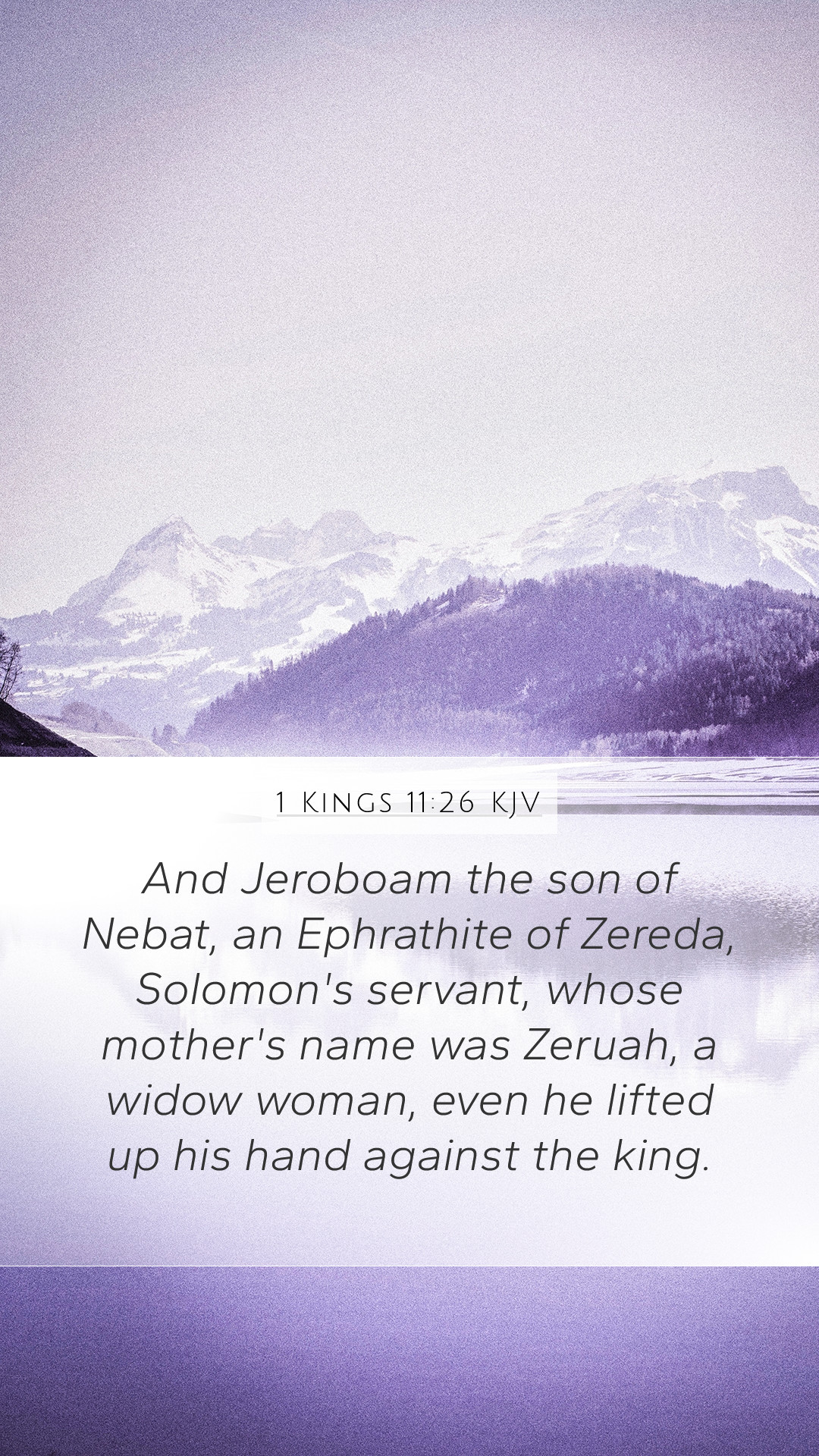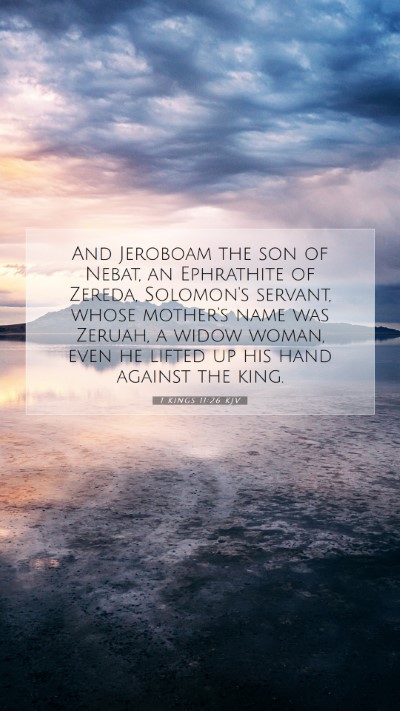Understanding 1 Kings 11:26: A Biblical Exegesis
1 Kings 11:26: "And Jeroboam the son of Nebat, an Ephrathite of Zeredah, Solomon's servant, whose mother's name was Zeruah, a widow, even he lifted up his hand against the king." This verse serves as a critical introduction to the character of Jeroboam, marking the beginning of significant political upheaval in Israel's history. Below, we will explore various interpretations and insights into this verse using public domain commentaries.
Bible Verse Context
This verse introduces Jeroboam, setting the stage for his role in splitting the kingdom of Israel. Jeroboam's origins and character as a servant of King Solomon reveal important themes of loyalty and ambition. The details regarding his mother's name and status as a widow add depth to his backstory, hinting at possible struggles and motivations.
Insights from Public Domain Commentaries
Matthew Henry's Commentary
1. Background of Jeroboam: Matthew Henry notes that Jeroboam was chosen by God to be a leader, emphasizing that his rise was not merely political but divinely ordained. Henry underlines the significance of Jeroboam’s humble beginnings as a servant, which illustrates God's ability to elevate individuals from lowly statuses.
2. Rebellion Against Authority: Henry interprets Jeroboam's actions as a rebellion against Solomon, viewing this as a precursor to the civil strife that would come. Jeroboam's discontent with the current regime highlights the broader theme of division within Israel, echoing the struggles between leaders and the people.
Albert Barnes' Notes
1. Geographical and Lineage Significance: Barnes emphasizes the importance of Jeroboam’s Ephrathite lineage, suggesting that it connects him to a historically significant tribe (Ephraim), known for leadership. Being from Zeredah further grounds Jeroboam in a particular locale, enhancing the narrative of regional tensions influencing national events.
2. The Role of Personal Ambition: Barnes analyzes Jeroboam's motives, suggesting that his rise was filled with personal ambition that eventually led to Israel’s division. His actions reflect the conflicts between personal aspirations and the overarching will of God as the chapters unfold.
Adam Clarke's Commentary
1. Theological Implications: Clarke focuses on the theological implications of God anointing Jeroboam despite his rebellious actions. He points out God's sovereignty and the mystery behind divine choices, demonstrating that God's plans often surpass human understanding.
2. Socio-Political Climate: Clarke further explores the socio-political climate in which Jeroboam operated, recognizing how the burdens of Solomon’s reign created discontent. This discontent serves as fertile ground for rebellion and serves as a critical lesson for contemporary applications regarding leadership and governance.
Application and Relevance
The story of Jeroboam serves as a relevant lesson in the complexities of leadership and ambition. It illustrates how one’s rise to power may be intertwined with both divine purpose and personal motives, suggesting caution in how one interprets authority. Furthermore, it poses questions regarding loyalty and the impact of leadership decisions on a nation’s unity.
Bible Cross References
- 1 Kings 12:20: Discusses the affirmation of Jeroboam’s rule over Israel.
- 2 Chronicles 10:16-19: Chronicles the division of the kingdom and the people's response to Jeroboam.
- 1 Kings 14:16: Explores the consequences of Jeroboam's reign and God's judgment.
Conclusion
In summary, 1 Kings 11:26 highlights pivotal themes of ambition, rebellion, and divine sovereignty in leadership. Through the eyes of Matthew Henry, Albert Barnes, and Adam Clarke, readers gain enhanced Bible verse understanding and Bible verse meanings that resonate with contemporary struggles of authority and governance.
For anyone engaging in Bible study lessons, the insights from this commentary provide a roadmap for further exploration into the complexities of biblical figures like Jeroboam and their implications for modern life.


